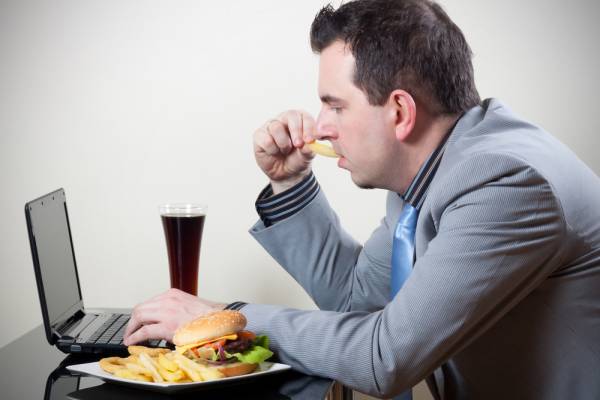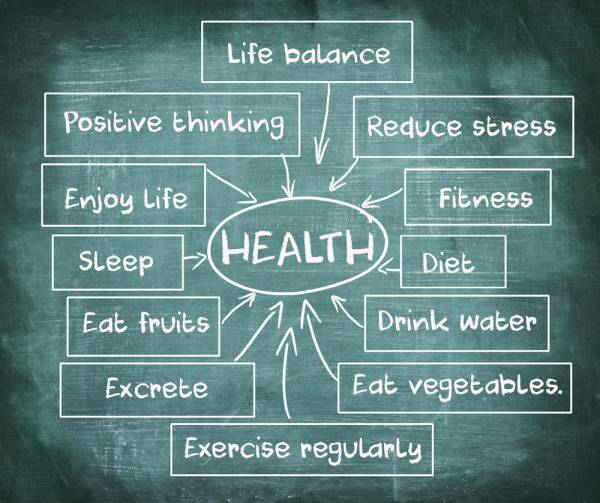There are three things you should never talk about at the dinner table: politics, religion, and nutrition. Bringing up any one of those three could turn a loving family dinner into World War III. I do not know about you, but I would rather eat my mashed potatoes than be wearing them.
I am not sure why, but people do take their food seriously. This applies to coaches, as well. We all have our beliefs in what an optimal diet and exercise plan look like. In too many cases you would be better off insulting a coach’s mother then contradicting his or her plan.
RELATED: Why You Should Eat Eggs, Why You Shouldn’t Not Eat Eggs
But the problem is there is not a one-size-fits-all solution to exercise and healthy eating. I am a paleo guy all of the way, but there are times I may need to deviate from those guidelines in order to be successful with a client.
Create Nutritional Plans That Work
Our job as coaches is to create plans that work for each and every one of our clients. If I have a client that truly loves his morning oatmeal, but eats a lot of fruits, veggies, and quality protein sources throughout the day, I am not going to deprive him of his oatmeal, even if it’s not paleo. I will simply make sure he gets a good portion of protein in the morning along with the oatmeal and we will move on.
TRY THESE: Plantain Protein Pancakes (Recipe)
Depriving him of one of his favorite foods is only going to set him up for failure in the long run. He is not going to stay away from that food for a lifetime. This is a lesson I have learned the hard way over time. A client like this will take out the oatmeal for a week or two, eat a bowl, feel guilty about it, and then gorge on other junk food. This does not happen with all clients, but it happens frequently enough to warrant consideration.
“Our job as coaches is to create plans that work for each and every one of our clients.”
Of course, this is all with the assumption this guy is a completely healthy individual who just wants to move better and be healthier. With some health conditions it may be important to take out the oatmeal.
The Impact of Stress on Our Food Choices
The biggest question that needs to be answered is “Why are we gaining weight or failing to lose it?” I believe the obesity epidemic is caused by the overconsumption of hyperpalatable foods and of equal importance is the chronic state of stress we find ourselves under.

The combination of these two things leads to increased caloric intake, increased fat storage, and a harder time utilizing the stored fat as energy. The scary part is that stress leads to us eating more hyperpalatable foods and hyperpalatable foods cause us stress by altering our gut microbiome and being deficient in nutrients.
“The combination of these two things leads to increased caloric intake, increased fat storage, and a harder time utilizing the stored fat as energy.”
Imagine you just get home from a rough day at work and sitting in traffic. Throw a poor night’s sleep on top of that. Do you go home and say, “Man, I had a tough day at work. I feel like drinking some kombucha and eating some carrot sticks”? Or do you grab a beer and a piece of that leftover pie? When this happens frequently enough, we develop a learned behavior. We get stressed and we lean on food. This then becomes a tougher habit to break.
Look at the Big Picture
The key to helping a client is to first assess his current situation. From there, identify ways to make his eating habits more satiating and take into consideration other areas of his life that can also increase caloric intake. For example, sleep and stress.
RELATED: How Stress Makes You Crave Food and Store Fat
Let’s go back to the client eating the oatmeal in the morning. Do I think it is the oatmeal that is leading to his weight gain? I don’t think so. It comes down to eating an inadequate breakfast. A meal of coffee and a bowl of oatmeal sets this guy up for blood sugar swings all day. But add some quality protein with the oatmeal and it will increase his satiety and help level out his blood sugar. I am a big three-meals-per-day fan because this approach helps our fat-storing and fat-releasing hormones get equal amounts of time in the bloodstream.
We also need to look at the stresses in our client’s life that are leading to poor food choices. We cannot change the fact that our client sits in traffic, but we can suggest techniques to keep him relaxed. Listening to calming music or a book on tape may be an effective strategy.

Then, we need to get him into bed at a reasonable hour and in a blacked-out room. This may involve shutting the TV off an hour before bed and sitting by candlelight to help minimize artificial light exposure. I like to recommend magnesium baths in the evening for both relaxation and helping us recover from workouts. Evening is also a good time to take a magnesium supplement if a bath is not in the plan.
Get Clients to a Better Place
Our job as coaches is to get our clients to a better place. Proper nutrition is a big part of this, but there is no one best diet for everyone. I believe paleo is the best template to begin with, but that is what it is – a beginning point.
“We also need to look at the stresses in our client’s life that are leading to poor food choices.”
I still occasionally eat bread and pizza. Apply the 80/20 rule to nutrition. Depriving a client of some of his or her favorite things can be detrimental to long-term success. So ask your clients to be 80% compliant with good food choices and give them that 20%.
RELATED: When It Comes to Food, Options Can Be Obstacles
From there find ways to make sure your clients stay on course. You can have the best plan on paper that is backed by concrete research, but if the client does not follow it the plan is useless. Be a coach and guide each client to success.
Photos courtesy of Shutterstock.






